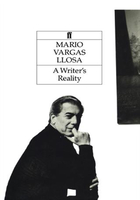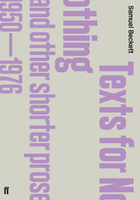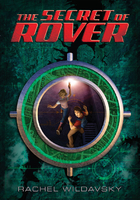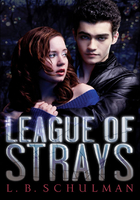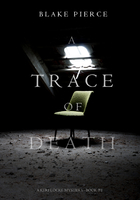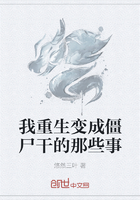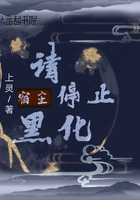MILES HAD FALLEN ASLEEP toward morning, a deep untroubled sleep, with no dreams, no cramps in the foot, no sudden convulsions of arms or legs. It was as if he had taken his mother on that endless trip to the bathroom for the very last time, and now nothing remained for him to do. No obligations. No worries. No disturbing sexual desires. Just a long untroubled sleep, for eternity.
He turned in the bed—there was a noise of some kind—and for a moment he tried to fight his way to consciousness, but it was a hopeless task, and he smiled in his sleep as he abandoned himself, luxuriously, to a world without feeling.
The alarm clock had been ringing for almost a minute before Margaret realized what the sound was. She threw back the covers and was in the bathroom brushing her teeth before she was even fully conscious. Saturday morning. She had to get over to Miles' place, pronto.
She had taken a Xanax the night before, but when that did nothing for her, she had had a glass of wine and a Nembutol and eventually she fell asleep. After the nightmare, she'd taken another Xanax, not to make her sleep but just to relax her nerves, to help her get through another day.
It was morning at last and she swallowed a couple aspirins. They would take care of the hangover and serve as breakfast too, since she didn't have time to eat anything. She fussed with her hair for a few minutes, applied some blusher to her cheekbones, and ran a pale lipstick across her upper lip. She put on her new bra. She struggled into the damned pantyhose, a deep blue, rolling the waistband down so that it wouldn't cut into her waist. She would have liked to put on jeans, but she was dressing for Eleanor, and so she put on a white blouse and a blue denim jumper, a compromise. And low heels.
She glanced at herself in the mirror. She checked the time. She was running late, but she could still be at Miles' house by seven-thirty, and with luck she'd be able to get Eleanor up and bathed and in her chair while Miles was still asleep. He loved that. And she loved doing it for him. She owed him everything. He would marry her eventually and then she would rid her mind forever of all the horrors of her first marriage. Everything would be wonderful, or at least endurable. Miles was her salvation.
William Endicott, the principal of Malburn High, awoke early Saturday thinking of that skinny little shit, Miles Bannon. Bannon was the only one who might give him trouble. At the hospital yesterday he had ensured the silence of the Mack family, and he had taken care of Coach immediately afterward. And talked to the chief of police, of course. Today he would haul out the heavy artillery against the parents of those five kids. That should put an end to the incident. It was an exercise in containment. Damage control at a high level. He could handle it.
Endicott had been a captain in the army, a twenty-year career man who had served his country in Korea and in Nam before devoting his life to education. Between his two wars he had earned a quick M.A. in educational administration, with a thesis applying the principles of military life to the training of youth, and when he took his army pension at age forty-three, he was a hot item on the education market. He got a vice-principal's job immediately, and in a few years he moved up to principal; ten years later he was made principal of Malburn High.
He was sixty now, with a straight back and a strong mind and two successful careers under his belt, and he was damned if he'd have a scandal on his hands just because that little shit Bannon couldn't keep his mouth shut. He would have to deal with Bannon on Monday.
He reviewed the situation once again. The Mack kid would keep quiet, of course. The doctor was on the School Board; no problem there. The Mack father was the lunatic type, but he was also a cop, so he could be counted on to take care of the police. Besides, the police chief was an old buddy. He could be trusted. And as for Coach, well, good old Coach knew that if the incident got out, it was the end; he might as well bend way over and kiss his ass goodbye.
He anticipated no great difficulty with the five sets of parents; he had scared them shitless with his phone call last night. A follow-up visit this morning would keep them quiet forever.
The problem of containment was up to him, of course, no question about that. The superintendent was off in San Diego at a curriculum conference and he'd prefer not to know any facts, please, and his own vice-principal was incapable of anything except nodding in agreement or shaking his head—also in agreement. It was his problem and he was gonna contain it.
So the only loose cannon was that little shit Miles.
He paused for a moment. In fairness—and he tried always to be fair—Bannon was a smart man and a good teacher and, so far as you could tell, morally responsible. There was just something about him. In any case, he would neutralize Bannon first thing on Monday.
He showered, dressed, and ate his breakfast. He kissed Missy goodbye, but she turned away. "Your breath," she said. They had a rule about not talking until after breakfast and these were the first words between them this morning. She took a roll of Certs from the catch-all dish on the refrigerator and pressed one into his hand. "Give them hell, Captain," she said and, because it annoyed him, she gave the V for Victory sign.
Missy's sarcasm was the great burden of his life.
Coach hadn't slept all night. It was Saturday morning now and he had the shakes, but he was holding on, at least for the time being. Yesterday evening during the eleven o'clock news, Endicott had pummeled him awake and told him about the incident in the locker room.
Despite the fact that Billy Mack had told him nothing about what happened, Endicott had managed to piece together a vivid and bloody account of the incident, and he spared Coach none of it: he told him everything he learned from the attending physician and from the five boys who did it and from the evidence of his own eyes—since he had insisted on seeing the wound before and after the hundred twenty-seven stitches. He even included details about the booze and the cocaine, though to the parents he'd mentioned only the booze. Coach listened to the account in disbelief, and then in horror, and soon—while Endicott made him black coffee and repeated the story yet again—he came to accept it as another tragedy for which he alone was responsible.
It was the same way after the accident. They'd been coming home from a party one night after a lot of drinks. The pavement was wet and he was driving slowly but he sort of nodded off for a second, and when he came to, he realized that his foot was heavy on the accelerator and they were headed straight toward an abutment. Frantic, he pulled the wheel hard to the left, but it was too late. Carol's right side was crushed—her leg, her arm, all her ribs on that side were broken. Her right lung was punctured, her face badly disfigured. For three weeks she hung on, half-alive, and then she died. Coach was not injured at all, but mysteriously he developed a limp that seemed to get worse as time went on. In fact, it kept even pace with his drinking.
People understood, they said. Who could blame him? He'd snap out of it in time. Endicott had even covered for him, telling parents it was medication when they complained that Coach was drunk at games. But that was all over, as of right now.
"I'm to blame for everything," Coach said.
"It's true, you are to blame," Endicott said. "But it's not enough to just accept it and drink yourself to death. Look at what you're responsible for. Make no mistake, you are responsible and, if this gets out, you're out. That boy's gonna be marked for life, and it wouldn't have happened if you'd been doing your job."
"I know. I know."
"So do it." Endicott punched him in the arm, not too gently. "You can do it."
"You mean, stop drinking?"
Coach had not slept the rest of the night. He turned on the television, switching from station to station as each of them went black, and ended finally with Creature Features so abysmally stupid that even he, frantic, desperate, could not bear to watch any longer. He got out a fresh half gallon of Seagrams and put it on the coffee table and sat watching it until the sun came up, lighting the bottle from behind and turning it pale gold.
Saturday morning. He felt like he'd been sitting there for weeks. More than anything in the world he wanted a drink, and more than once he made a move toward the bottle, but always the thought of Billy Mack, torn and bleeding, came between him and the whiskey. In the end, he got up and made himself a pot of coffee instead. He hated coffee. But he drank it dutifully and then went to shave.
A day at a time. Others had done it. That fool Dietz, for one.
Billy Mack lay in bed waiting for his mother to wake up and start breakfast. He had cried himself to sleep after his father left for night duty. Sleep had surprised him, because he thought he would never sleep again, or be able to eat, or read a book, or do any of the things he had always done. He could see now that he was wrong; he would sleep and eat and read, but he knew he would never be able to laugh again. Never. Not after what they did to him. And what his own father had said about him.
He slipped a hand down between his legs. He was still badly swollen there, and it hurt him to walk—he had tried it last night—but he was going to walk to school Monday even if it killed him.
In a way, he understood his father. His father was afraid, that's all; he just wanted a son he could be proud of, a real man, not some sissy fag. He wanted to please his father and he couldn't, and so his father frightened him. But his mother drove him crazy. All last night she'd been after him to have a talk with Mr. Bannon, just please have a little talk with Mr. Bannon, Mr. Bannon called and says he wants to have a talk with you. But he wasn't talking to Bannon or to anybody.
Last year when he had Mr. Bannon for English, he liked him at first because he was different and said crazy things, and he even talked about him at home, but then he had that dream. It wasn't like any dream he could remember and in a way it changed his life. In the dream, they were on the school picnic, at a playground or a beach, and they walked out to the end of the wharf, just the two of them. It was late afternoon—the sun had gone down—and he could barely see the others back there on the shore. Everyone was very quiet. Mr. Bannon was smiling at him the way he did, and he asked, "Why are you smiling at me like that?" and Mr. Bannon said, "You know why, don't you?" and he said, "No, no, I don't," and, terrified, he ran from the wharf back onto shore. Nobody would talk to him, and they all moved away in little groups, whispering together, glancing back at him. And out on the wharf, Mr. Bannon was still smiling at him, looking.
After the dream, he didn't like Mr. Bannon anymore. He knew it wasn't Mr. Bannon's fault that he'd had the dream, but the dream was like a warning. It scared him in a way nothing in his life had ever scared him. Because, what if it were true, and he had been born a queer, and that's why the guys had done this to him? And what if Mr. Bannon knew it?
Richy Polcari was up early and out. He had made coffee for his parents, watered the houseplants, and tidied up the living room so as not to shock the cleaning lady who came late Saturday mornings. Richy had a natural sense of order that compensated for the chaos of his parents' lives. His two older brothers, one twenty-seven and the other twenty-nine, both attorneys now, had pretty much raised him by themselves, since their parents were so clearly unequipped to do so. When they'd left for college, however, Richy was on his own.
His parents were academics, his father an economist at MIT and his mother a professor of human biology at Boston University. His birth had been an accident, of course, and his father simply didn't know what to make of him. His mother did. She knew he was gay almost from the start, and whenever she thought of him, it was of "poor Richy." When he was twelve, she gave him a firm talk on sexually transmitted diseases and, though she would have liked to do more for him, what could anyone do? You can't change nature. You had to acknowledge and respect it. Richy was intelligent and attractive, he was outgoing, he was comfortable with being gay. They would just have to hope for the best. Sex would always be a problem, of course, but perhaps Richy would meet some nice young man and they would be good to one another; it was not impossible. In any case, she had done what she could.
This morning Richy was on his way to the Boston Public Library because he did not want to deal with the cleaning lady while he was trying to decipher Vergil's hexameters. He had to put in at least two hours to get ahead in next week's work so that he'd be free to spend Saturday night and Sunday with Robert.
Robert had picked him up in the men's room at the Boston Public Library last summer—Richy, in his suit and tie, had looked a safe twenty-one—and now they saw each other at least once a week at Robert's place. In Richy, Robert saw himself at seventeen, and he was determined to help. He gave frequent instructions on how to survive when you're simultaneously in and out of the closet. He was an expert on that, having led a very active gay life in D.C. and San Francisco while holding political jobs that required him to at least look straight. He knew that Richy listened and shrugged and went on being queenish, but he also knew that Richy was very smart and eventually would settle down and make the compromises necessary for survival in the real world. Robert himself was employed as a personal aide to a state senator and had taken an unwise risk in picking up Richy in the first place. Moreover Richy was a minor, and for that reason Robert was careful not to be seen in public with him, let alone in the Combat Zone where Richy liked to go exploring. Richy could be maddening with that non-stop chatter, but Robert liked his gawkiness and his sincerity and his ability to improvise at sex games. Besides, he had a schlong that just wouldn't quit.
Richy was seventeen and Robert was the first person who had ever accepted him as what he was—except for his mother, who didn't count. He knew that Robert was right, that he should just lie low, play it cool, try to pass unnoticed in the straight crowd. But he couldn't help himself. He wanted them to like him. He wanted to be popular. He wanted to be like Paul Ciampa or even like Cosmo or Billy Mack.
As he locked the door and started for the subway, he found himself, by habit, saying his prayer for school days: "Please, God, just don't let them make fun of me today." Which, this morning, made him laugh. It was Saturday and he didn't have to pray and he didn't have to worry. He could walk the way he wanted, he could wave his hands when he talked, he could let his voice sound as fruity as he liked. Deliberately, he tossed his hair back like a girl. He could be Judy Garland if he felt like it. He began to skip down the yellow brick road.
When Miles woke on Saturday, he knew something was wrong. There was too much sun in the room, there had been sounds of movement in the house for quite a while, he heard someone laugh. He sprang from his bed and was at the door in seconds.
"Margaret?"
"We're in here," she called.
So, he had overslept. Miles tiptoed into the living room, and there was Margaret, standing behind his mother, carefully combing out her hair for her. "Sleepy-drowsy," she said. "Eleanor's had her bath and her breakfast and we're getting on with life." She blew him a kiss.
"The blue momoo," Miles said to his mother. "How're you, sweetie pie?"
Eleanor had the blue blanket around her this morning and she was bent over her writing board in fierce concentration. Miles knew what that meant. Whenever Margaret came over, Eleanor always took care to write out instructions for when she would be hospitalized: "No extraordinary means, no life preservers, no machines to keep me alive." She'd been a devout Catholic all her life, and she would never dream of committing suicide, but she wanted to make sure they didn't attach her to one of those machines and keep her officially alive. She wanted out as soon as it was her turn to go.
"Momoo!"
She looked up and shook her pencil at him.
"Got it," he said, pointing to her writing board. "No veg for you, sweetie pie."
"Miles!" Margaret said.
"I'm outta here. I'm history," he said. "I'm gonna shower." He took a long, warm shower and leaned against the tile wall, thinking. This is how it would be afterwards. They would marry, and he'd have a full night's sleep now and then, and in the morning Margaret would be there, looking terrific, and no grim tasks to perform. He would definitely marry her when this was over. It was what she wanted. And he owed it to her. And, of course, he wanted it too.
He felt a little shudder run through him as he thought of all those years ahead of them, all those times he would have to perform. He reached down and touched himself. At once he began to get hard. He soaped his body all over, and then he stood with his face turned up and let the water wash the soap away. He closed his eyes and let his hands work slowly down his chest to his stomach, and then lower, exploring his body the way Margaret liked to. He was perfectly erect. Like a steel rod, he told himself, and he pressed down to make it even harder.
All his life he'd been embarrassed by his body, by nudity of any kind; it was forbidden, it was frightening. But look at this. Just look at this. This was terrific. Forget about forbidden; it was exciting.
He could fuck them all with this thing. Margaret. Diane Waring. Every girl in the senior class. He thought of jacking off, but no, he'd save this for Margaret.
He began to feel better. He began to feel wonderful. It was a beautiful September day, he had a full, rich life, and—who knows?—he might get really good at performing. He might even get famous for it. Old Miles Bannon, the sex machine. The pneumatic drill. Stud City.
Well, why not?

